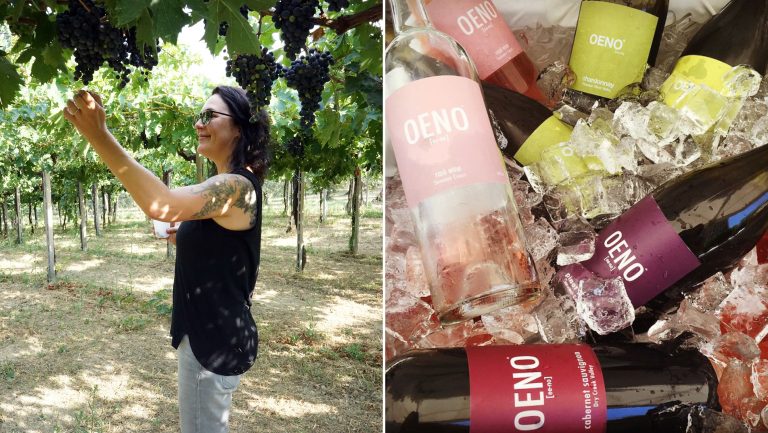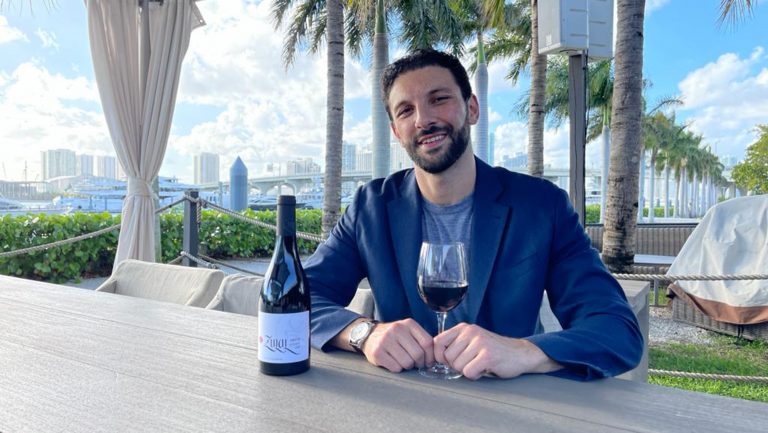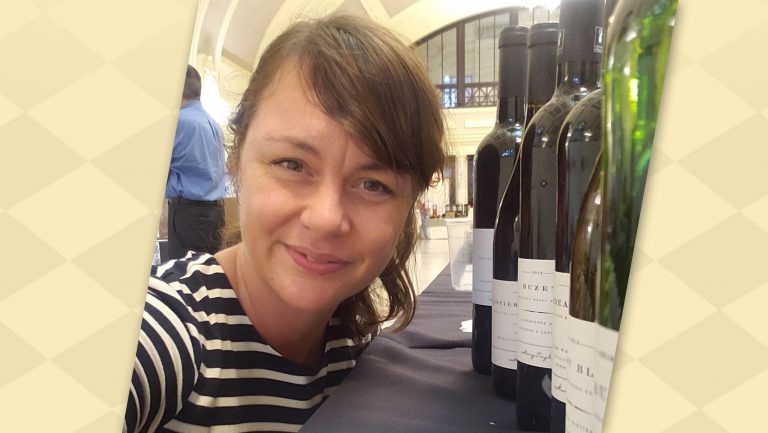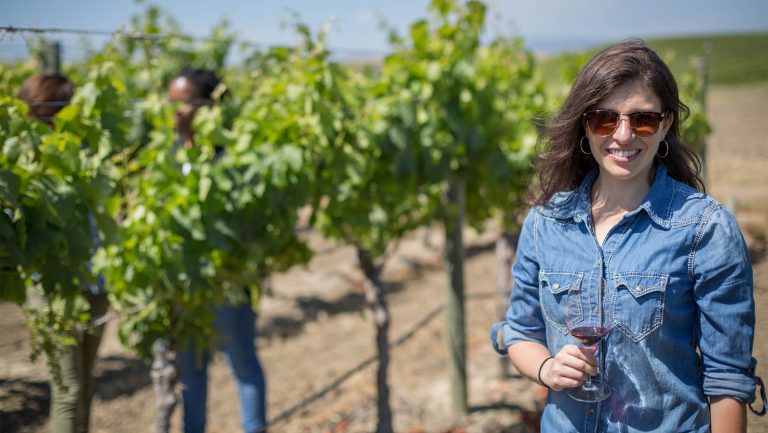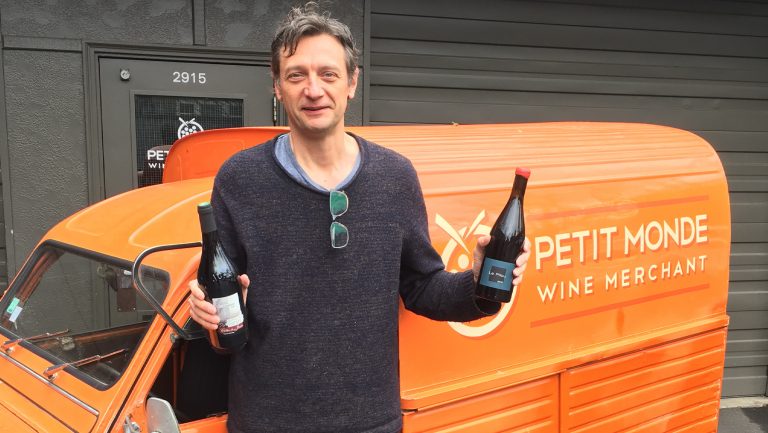In our Importer Intel series, we interview importers about how they broke into the business, built up their portfolios, and navigated challenges along the way.
For some, simply working in their field of interest isn’t enough. Once they get the lay of the land, they see a lot of problems, and few solutions. Amy Atwood worked in wine for 15 years—at wholesalers and importers, including as a national accounts manager at Vine Connections and a national sales director at Yellowwood Wine Company. During that time, her passion for wine grew, and so did her concerns about sustainability and the fact that organic viticultural and winemaking practices weren’t being employed at many of the larger operations in the industry.
She decided she wanted to help make a difference, and she realized she could do that by championing sustainably produced natural and organic wines. In 2009 she launched her eponymous venture—Amy Atwood Selections—with the goal of creating an import and distribution company that would carry small-batch organic sustainable wines. Since 2012, she has also run her own label, Oeno, which sources fruit from vineyards in Sonoma, California, and ferments and bottles it as natural wine under her strict specifications (pristine fruit, native yeasts, neutral oak) in Healdsburg.

Don’t miss the latest drinks industry news and insights. Sign up for our award-winning newsletters and get insider intel, resources, and trends delivered to your inbox every week.
By creating a market for natural wines like those from Patrick Sullivan in Australia, the California-based family-owned label Donkey & Goat, the quirky Napa passion project Dirty and Rowdy, and the old-vine slow-fermented Wilde Farm Wines in Anderson Valley, Amy Atwood Selections has helped pave the way for many other environmentally conscious import and distribution companies that have come onto the scene since Atwood started her company.
SevenFifty Daily sat down with the pioneering small-batch organic wine importer, distributor, and producer to get insight into her initial vision and her plans for the future, and to nail down, precisely, how she defines sustainable viticulture and winemaking.
SevenFifty Daily: What inspired you to start a new company in mid-career?
Amy Atwood: I started my own company because I wanted to sell wines I felt passionately about. That meant finding wines I wanted to drink myself, and only working with winemakers I respected.
How did you land your first client?
At the beginning, all of my clients were walk-ins. I had been a national sales manager, so I did not have any local California clients at the time. I went to the best restaurants in California and I presented my wines. I knew sommeliers were more likely to understand what I was doing, and that once I got that buzz going, retail business would follow. But now that has changed, and we have so many amazing retail options in California.
When did you have to hire your first employee and what was the job? How did your staff plan evolve over the years?
My first hire was a San Francisco–area sales rep in 2010. California is a big state, and as I began to grow, I needed help up north because I live in L.A. I currently have six sales reps to cover the state, and one office manager. My whole team has always been virtual, and I don’t see that changing. We have no need for an office really, since the sales reps are out seeing customers all day and my wine is stored in a warehouse, which handles our deliveries. My office manager even works remotely.
Amy Atwood Selections has made a focus on smaller-production organic sustainable wines central to its mission—has that been key to the success of your business?
Definitely. When I started my company, almost nine years ago, there were only one or two other people focusing on smaller-production, more natural wines. Today there are dozens. But it did help differentiate me and my wines in the beginning.
How do you define organic and small production?
Organic is simply organic farming, certified or not. To me this means no chemicals in the vineyard. Small production is harder to define. I have some producers I work with who only make a few hundred cases per harvest; others make a few thousand. But I still consider under 5,000 cases rather small.
What was your biggest back-office challenge and how did you solve it?
The biggest challenge was doing everything myself for so long. Sales, purchasing, all administration, taxes, et cetera. I worked seven days a week for many, many years. Now I’m down to only six days a week, so life is good! As I mentioned before, we hired our first sales rep in 2010 and grew the team slowly after that. But about 18 months ago, it became clear that we needed to scale up, so we jumped from three to six reps since that time.
How do you balance producing, wholesaling, and importing?
Wholesaling in California is my day-to-day job. Importing wine and producing my own wine each probably take up another 15 percent of my time and energy. I love the diversity—it keeps me interested and challenged.
Who’s your dream client?
Ha! One who really understands and appreciates the producers and wines I present to them, buys lots of wine, and pays on time! And in all seriousness, I have several already in my roster of clients who fit that description.
When did you start offering vermouth and cider, and do you plan to expand those categories?
I love both vermouth and cider, so it was a natural extension for me. I started selling both in 2011. But they both remain smaller categories than wine. And yes—a special vermouth project is in the works now. It will release later this year. Stay tuned!
What areas of your business are you looking to develop this year?
I’m expanding my imports program. That will entail increasing the number of wines I import and represent, but also scaling up business with existing importers. And I’m coreleasing a California gin, hopefully in June—with a very talented group of women. Thankfully, Amy Atwood Selections has had lots of growth every year. I grew slowly and organically, and I have always paid my producers on time. With this approach, and simply showing up every day for nine years, we are achieving double-digit growth every year. I am constantly grateful to be making a living by selling wines that bring me so much joy.

Dispatch
Sign up for our award-winning newsletter
Don’t miss the latest drinks industry news and insights—delivered to your inbox every week.
Kathleen Willcox is a journalist who writes about food, wine, beer, and popular culture; her work has appeared in VinePair, Edible Capital District, Bust magazine, and Gastronomica, and on United Stations Radio Networks, among other venues. She recently coauthored, with Tessa Edick, “Hudson Valley Wine: A History of Taste & Terroir.” She lives in Saratoga Springs, New York.

